Doctor Sapena, 54 6B
03013 – Alicante
674 642 653
Avenida del Mediterraneo 3, bajo
03503 – Benidorm
674 642 653
HLA San Carlos
03700 – Dénia
674 642 653
Doctor Sapena, 54 6B
03013 – Alicante
674 642 653
Avenida del Mediterraneo 3, bajo
03503 – Benidorm
674 642 653
HLA San Carlos
03700 – Dénia
674 642 653
The Ginecomasty or men breasts is the growth of breasts in men.In the mans breast, just like a womans, there is a part glandular and a part of fat.This augmentation, in most occasions is produced spontaneously for no clear reason or cause.We dont know how or why the male patient suffers a growth of the gland which makes the breasts grow. After blood tests and a full check up, everything is completely normal.
The second reason that the breasts can grow is from the use of drugs or substances that can make the gland develop. This is the case of a male patient who consumed or was consuming substances that enlarge the muscular mass.
A third cause which is called psuedoginecomasty. This is the most frequent of them all, but with a huge difference, Consists in the growth, but not of the gland, of the fat. So, patients who are obese or overweight, also put weight on in their chest.
The treatment consists in the elimination of the fat and the gland. The fat is removed with liposuction and the gland we remove with an incision in the areola. The result is a breast in harmony with the body, with the pectoral región more defined, with no excess fat, marking the pectoral muscle to have a result, flatter and more masculine.
The psychological benefit is important. The patients have a complex when it comes to doing sports, going to the beach, showing their chest, which all disappear. Many patients go back to wearing tight t-shirts and they feel much more sure of themselves.
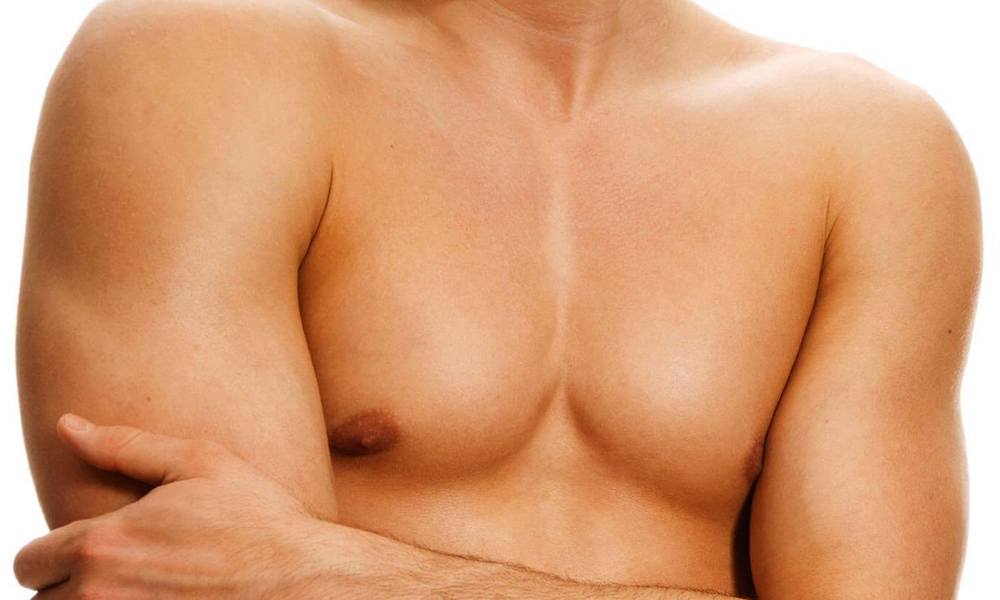
1 hour
Outpatient treatment for the majority of the patients.
7 days for office work. 15 days for anything more strenuous.
After 4 weeks you can start light exercise. After 3 months for any kind of sport.
In the fold of the breast or in the areola. With Urgotouch laser we can obtain better results.
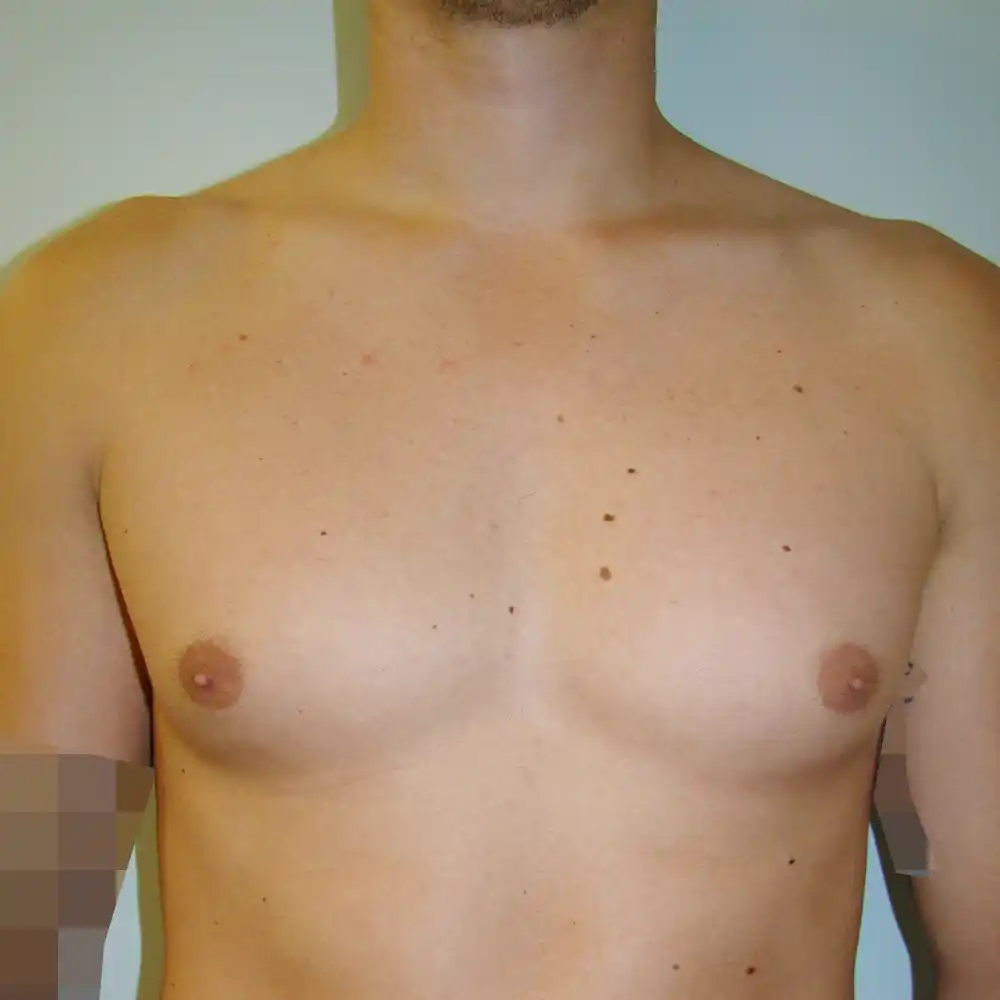
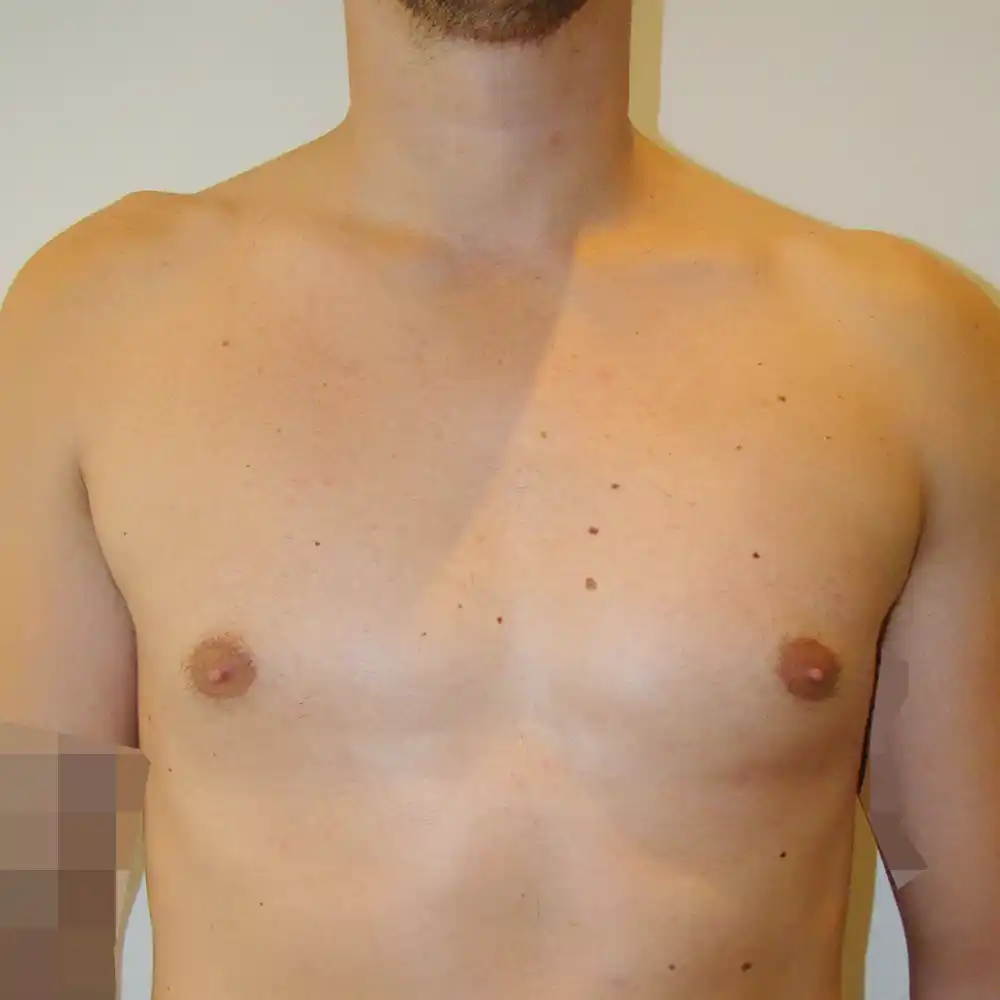
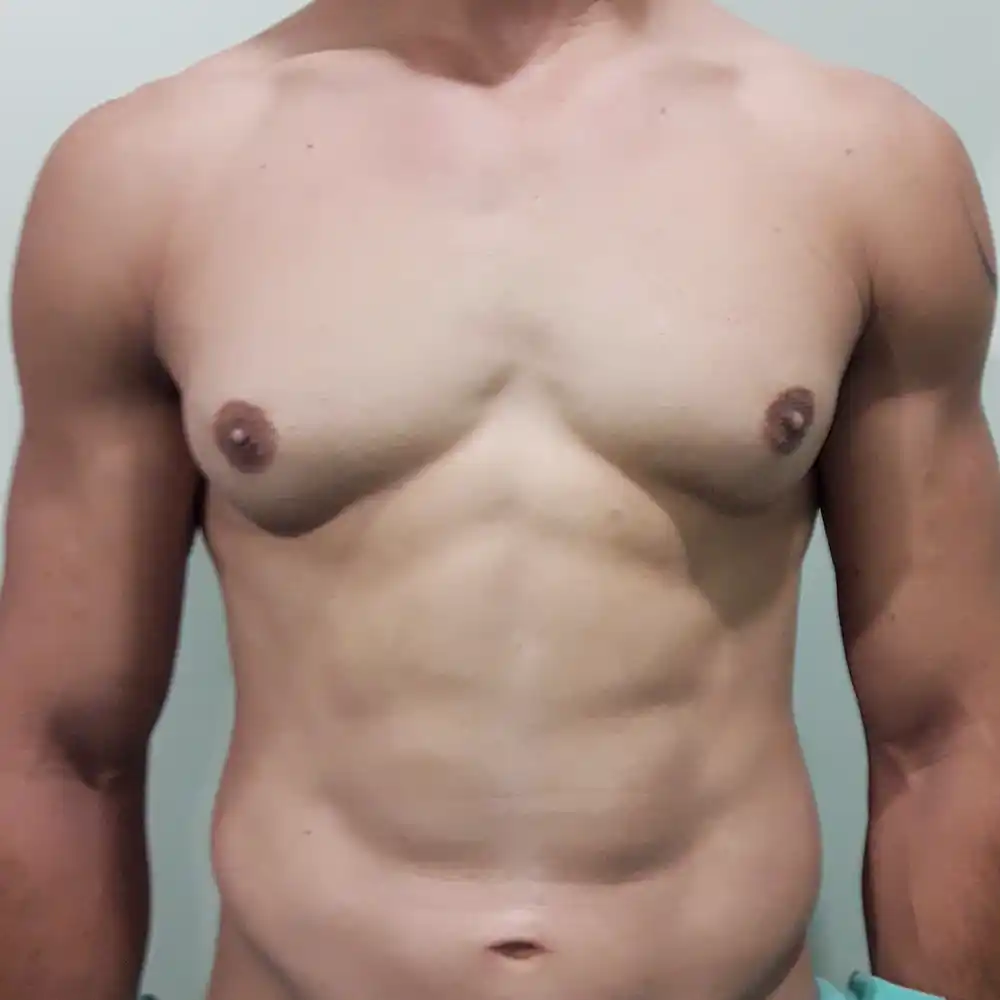
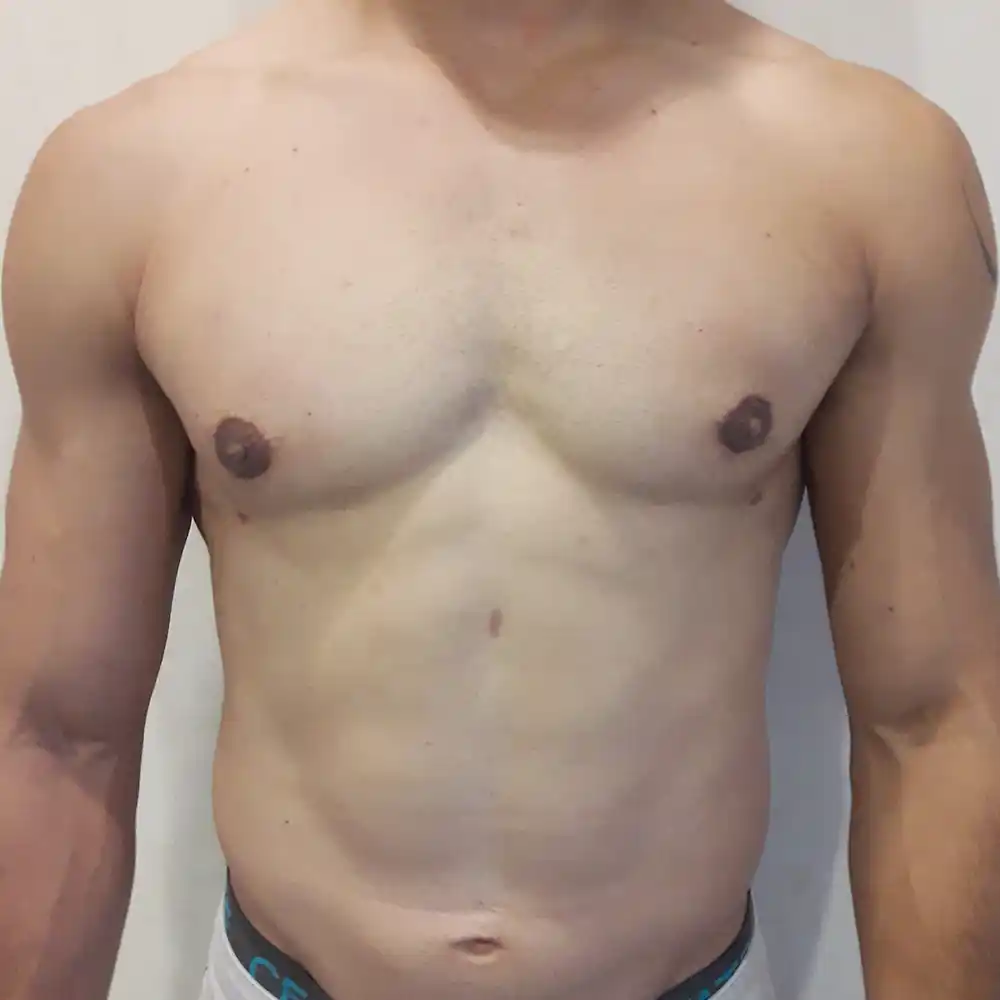
The definite result will be visble 3 months after surgery, and the objective is to give back a pectoral zone with a more masculine aspect, free of excess fat and the gland.
You can carry out exercise and lift heavy objects one month after surgery. If you can, I would recommend to not lift weights in the gym as this implies the use of the pectoral muscles, until at least three months have passed.
There is no problem at all to fly by plane after the surgery.
We recommend that you wear a compressive girth during the three or four weeks.
At the first consultation, which is free and non compromisal, you will speak with our doctors. They will ask a few questions about basic health background and you can comment about what type of result you would like. They will explain the surgical technique, the risks, the benefits and the costs. This consultation, can be in person or by video phonecall. You are in no way obliged, nor pressured, to fulfill the surgery after this informative consultation. Our team of surgeons will be happy to answer any questions you may have.
The ginecomasty surgery, is an intervention done under general aneasthetic and does not require you to stay in the hospital. You will check in to the hospital and then you will be taken to the operating theatre, where our doctors will speak with you and respond to any last minute questions. You will meet the rest of the surgical team, nurses, auxiliares etc. Photos and a video will be taken. We will mark the anatomy areas to be treated, they will explain once again where the incisions will be made. You will be given aneasthesia so there is no pain from the operated areas during your hospital stay. The organised incisions will be made and the fat and gland will be eliminated as planned.Once the hemostasis is done, the wound is closed. At this time we can use the laser Urgotouch so that the scar is less visible. The stitches are dissolvable so they do not need to be removed. Its not usual for drainage to be fitted. You will leave the operating theatre with a compressive bandage so that your breasts inflame the least possible.
You will be accompanied by our team at all times, during your recuperation. You will have the compressive bandage as placed after the surgery which we will change at the next consultation, three or four days after surgery, and we will supply you with a support girth which will need to be worn for the first three or four weeks. You will need to take antibiotics and painkillers. Its normal that you may have some bruising which will disappear with the recommendations that we will give you. Our surgeons will tell you, how long before you can return to work. Also, when you can return to exercising or when you can drive again. Its better not to smoke until a few weeks have passed, as tobacco causes the scarring to take longer. The bruises and inflammation will reduce and after a couple of weeks you will see the final result. You will always have a contact telephone number, so you can call if you need anything, also in English.
All of the check ups until given the all clear, are included in your quote. The patients return to our clinic 3-4 days after surgery, once discharged from the hospital. The next visit is a week after surgery, two weeks after, one month later, at three months and then finally at six months later and anything else you may need until the all clear is given. All of the check ups and cures are done by our plastic surgeons. The will dedicate all of the time necessary for you to feel comfortable and guided at all times. You will have the use of a telephone number to contact us with anything you need, also in English. If its the case that you are in another country, the frequency of the check ups is exactly the same, but obviously they will be done telematically
All plastic surgery is destined to improve how the patient sees themselves. The patients will feel better, after seeing the improvement. It will lift their self-esteem. Their self-confidence also. If you feel better about yourself, others will notice this and you will enter a positive spiral to want to look after yoursel more, to be healthier. All this results in a greater mental health. After many years and thousands of patients, we can say, that this will also happen with you.
Our clinics are in Alicante, Benidorm and Denia. Here you can talk about costs, the possibility to finance and any other questions you may have.

This website uses cookies so that we can provide you with the best user experience possible. Cookie information is stored in your browser and performs functions such as recognising you when you return to our website and helping our team to understand which sections of the website you find most interesting and useful.
Strictly Necessary Cookie should be enabled at all times so that we can save your preferences for cookie settings.